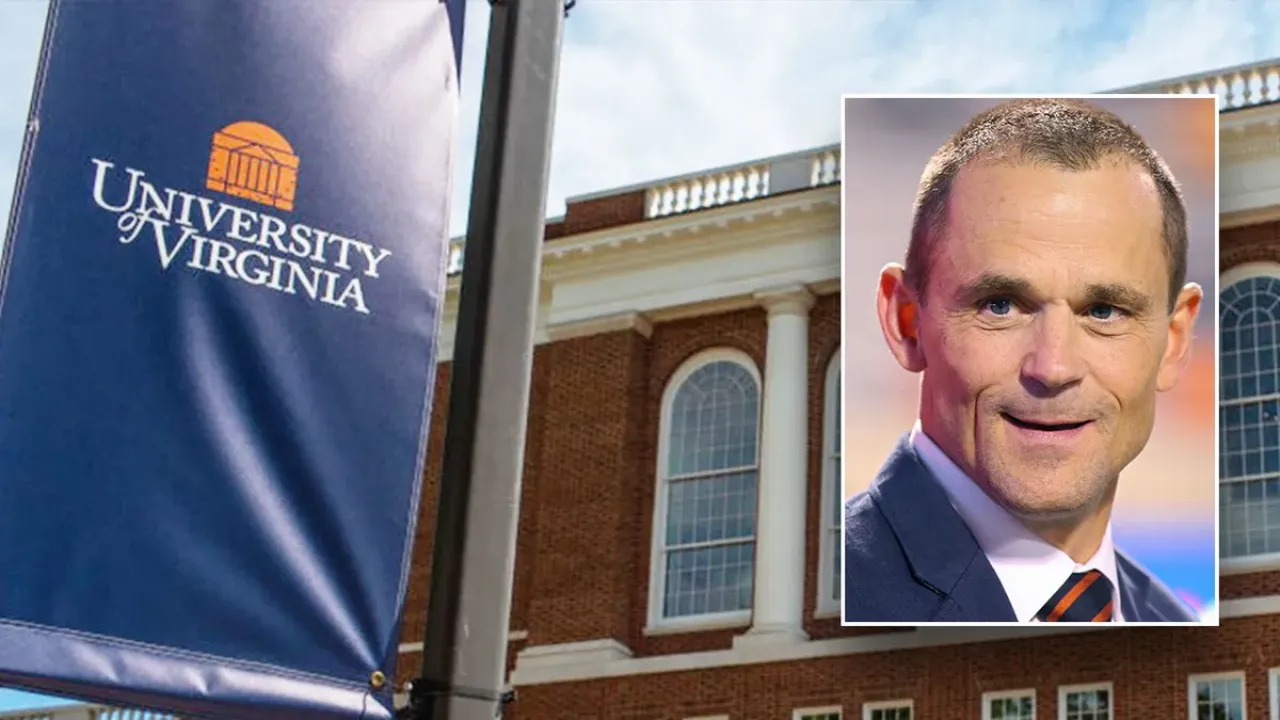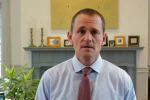UVA president resignation: In an unprecedented move that has shaken the academic world, James E. Ryan, president of the University of Virginia, has resigned under pressure from the Trump administration. The resignation came amidst a growing standoff between the federal government and higher education institutions over diversity, equity, and inclusion (DEI) policies. Ryan, known for his commitment to fostering inclusive educational environments, was compelled to step down following a Justice Department demand linked to a civil rights investigation into the university’s DEI practices.
His resignation marks a pivotal moment, not just for UVA, but for universities nationwide as they navigate a charged political landscape. The Trump administration’s firm stance on dismantling DEI programs has already impacted funding and leadership decisions across several institutions. Ryan’s exit is the clearest signal yet of how political pressure can reshape academic governance.
UVA president resignation
The UVA president resignation underscores a deepening clash between federal policy and university independence. As part of a settlement with the Department of Justice, Ryan agreed to leave his post to prevent the loss of over $355 million in federal funding. The investigation had flagged race-based admissions and student benefit practices as widespread violations of civil rights laws. For many, this resignation is not just about policy—it’s about whether universities will retain the freedom to make decisions based on their values rather than political coercion.
Overview Table
| Detail | Information |
| Resigned President | James E. Ryan |
| Institution | University of Virginia |
| Reason for Resignation | DOJ pressure tied to civil rights investigation into DEI efforts |
| Federal Funds at Risk | Over $355 million in research and student aid |
| Effective Date | No later than August 15, 2025 |
| Reaction on Campus | Student and faculty protests; emergency faculty meetings |
| Key Stakeholders | DOJ Civil Rights Division, Board of Visitors, Trump officials |
| Political Impact | Strengthens Trump’s push against DEI in public universities |
WASPI women issued ‘staggering’ update over £2,950 compensation
Although this heading doesn’t directly relate to UVA, it mirrors the scale of shock and urgency felt by those within the university community. Like the WASPI issue, Ryan’s resignation was seen as an overreach of federal power. Protesters rallied on campus, faculty leaders passed resolutions against the decision, and alumni groups condemned what they described as a hostile intrusion into the university’s self-governance.
DOJ Investigation and Federal Pressure
The Department of Justice launched its inquiry into UVA’s practices earlier this year, focusing on alleged race-based admissions and benefit allocations. The DOJ concluded that such practices were systemic and issued an ultimatum to the university: remove President Ryan or risk losing federal support.
The letter, signed by Assistant Attorney General Harmeet Dhillon and Deputy Gregory Brown—both UVA alumni—cited “pervasive non-compliance” with federal anti-discrimination laws. They argued that continuing under Ryan’s leadership would prevent meaningful reform. The university’s board, partially appointed by Republican Governor Glenn Youngkin, ultimately relented.
Campus and Political Reactions
The UVA community responded with outrage. Hundreds of students marched to Carr’s Hill, the president’s residence, chanting support for Ryan. Faculty called an emergency meeting and swiftly passed a resolution opposing the move. Many felt the resignation wasn’t just about DEI—it was a test of academic freedom.
Political figures chimed in as well. Democratic Senators Tim Kaine and Mark Warner criticized the DOJ’s actions, warning of long-term damage to Virginia’s education system. Even some conservative alumni expressed concern that the move undermined the university’s autonomy and traditions.
Ryan’s Final Statement
In an email to alumni and a short address to protesters, Ryan acknowledged that while he was inclined to fight, staying in the role could bring harm to the university. He referenced the loss of financial aid, visas for international students, and research jobs as costs too high to bear.
His resignation, he said, was driven not by fear, but by responsibility. “It would be selfish,” he wrote, “to risk others’ futures for the sake of holding onto mine.”
What This Means for DEI Programs Nationwide
Ryan’s departure is seen as a chilling warning to other university leaders. If DEI policies can trigger not only investigations but leadership changes, schools may now hesitate to maintain or expand such programs. Critics argue that DEI initiatives create inclusion and access; opponents say they introduce bias and violate federal law.
This episode may cause institutions to reevaluate their strategies—not just in DEI, but in admissions, scholarships, and faculty hiring. The balance between equity goals and compliance with evolving federal standards has never been more delicate.
The Role of University Boards
UVA’s Board of Visitors was caught in a high-stakes decision. While many members reportedly supported Ryan, they also faced mounting pressure from federal officials and threats to financial support. In the end, pragmatism appeared to win over principle.
This event raises new questions about how much influence boards should yield to political actors, especially when balancing legal risks with institutional identity. As more governors appoint ideologically-aligned board members, similar clashes could unfold at other state-funded universities.
FAQs
1. Why did James E. Ryan resign as UVA president?
He resigned under pressure from the Department of Justice, which made his removal a condition for resolving a civil rights investigation into UVA’s diversity and admissions policies.
2. Was Ryan planning to leave anyway?
Yes, he had intended to step down at the end of the next academic year. However, the DOJ’s demands accelerated the timeline.
3. How did the UVA community respond?
Faculty and students held emergency protests, showing strong support for Ryan and condemning what many saw as political interference.
4. Will DEI programs at UVA be eliminated?
Although not confirmed, Ryan’s departure and the DOJ’s investigation suggest that significant changes or reductions to DEI programs are likely.
5. What are the broader implications?
This case sets a national precedent where federal funding is used as leverage to influence leadership and policy at public universities.
Final Thought
The UVA president resignation is more than an administrative shuffle—it’s a signal flare for academic institutions across the country. It highlights the growing tension between political oversight and academic independence, especially in the realm of equity and inclusion.
For the UVA community and others watching, the message is clear: leadership roles, once considered academic appointments, are now deeply entangled with national politics. As other universities grapple with similar pressures, the need for clear policies, resilient leadership, and an informed public becomes ever more urgent.
Call to Action:
Stay informed. If you are a student, faculty member, or alumnus, your voice matters. Contact university leadership. Engage in respectful dialogue. And most importantly, advocate for institutions that reflect both academic excellence and integrity—free from undue political influence.






